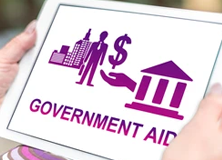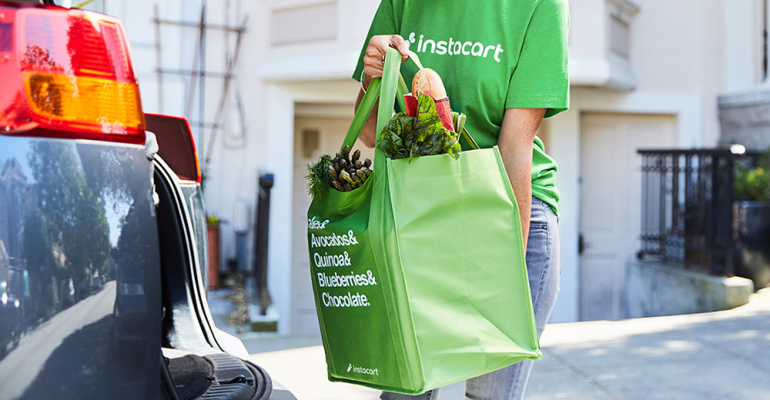Cash Assistance Programs in New York
Though it can be difficult for some people to ask for money during challenging times, everyone must know that the option is there if needed. Cash assistance programs in New York are readily available to those who qualify, and if you've found yourself in a position in which you've lost your job or your job doesn't pay enough, you don't have to continue to struggle.
Temporary Assistance (also known as T.A.) in New York helps laboring singles and families get back on their feet. It's relatively easy to apply, and depending on the influx of applications, the wait shouldn't be too long. Again, how long you'll wait for your assistance to come in depends heavily on your location and personal situation.
This guide will discuss cash assistance programs in New York, including who qualifies, how long it might take, and other information you might want to know. By the end, you should be comfortable with your knowledge of T.A. and have a good idea of whether the programs might suit you and your family.
The Family Assistance Program
Family Assistance, or F.A., provides eligible families with cash assistance. F.A. operates in New York under the federal TANF (Temporary Assistance for Needy Families) guidelines. Under F.A. programs, eligible adults can receive benefits for 60 months during their lifespan. The eligibility count includes instances where TANF was distributed to the same person or family in other states.
Once the receiving party reaches the TANF limit, the adult and family members will become ineligible to receive additional Family Assistance benefits. It's important to note that the assisted months do not have to be consecutive to add to the lifetime count.
Adult relatives or parents who receive F.A., but are determined able to work, must be in total compliance with all federal work requirements to continue to receive F.A. benefits. Each person applying for F.A. must cooperate with local and state social services departments to locate absent parents and obtain support payments, other owed monies, or property. If those receiving benefits do not cooperate in finding an absent parent, it could result in a lower F.A. payout.
Family Assistance Eligibility Requirements
If you'd like to be eligible for the Family Assistance benefit program, applicants must be residents in the state where they fill out their applications. Also, it's required to be a U.S. citizen or a legal or qualified alien. To qualify, you must be unemployed or underemployed with a low income. You must also be ONE of the following:
- Pregnant;
- Have a child that is 18 years old or younger;
- Be 18 years old or younger and the head of the household.
The Safety Net Assistance Program
If you don't qualify for the Family Assistance Program, you might find luck in the Safety Net Assistance, or SNA.
The SNA program provides cash assistance to needy and program-eligible families and individuals who don't meet the eligibility requirements for the Family Assistance Program. Safety Net Assistance works very well for those who are eligible under the following categories:
- Childless couples;
- Children living apart from adult relatives;
- Single adults;
- Families of those who abuse drugs or alcohol;
- Families of those refusing alcohol or drug screening;
- Families of those refusing drug assessment or treatment;
- Aliens are eligible for temporary assistance but don't meet the requirements for federal reimbursement.
Those receiving SNA that can work must comply with all New York work requirements to receive SNA benefits. Eligible recipients can receive cash SNA for a maximum of two years throughout their lifetimes. After the two years runs out, you will receive SNA in a non-cash form, such as payments made directly to your landlord or a voucher for the utility bill. Non-cash SNA is helpful and often given to:
- Families of those who refuse drug or alcohol screening;
- Families of those abusing drugs and alcohol;
- Families of persons refusing drug or alcohol assessment or treatment;
- Families with an adult who has exceeded the 60-month lifetime F.A. time limit.
Securing Cash Assistance in New York
While the eligibility requirements are strict, securing cash assistance in New York State is relatively easy if you qualify. If you've determined that you are eligible for help, you'll have to start by filling out an application.
You can complete the application process online or go to your local Department of Social Services to fill it out in person. The online option is convenient, but in-person is fantastic for those who may need help answering application questions.
Regardless of where you're filling out an application, you must prepare to give out personal information, including your social security number, date of birth, address, phone number, and a photo I.D. Because cash assistance programs base their benefit amount on income, you'll need a copy of your current pay stub or proof that you're not working.
Also, you'll have to prove that your living situation falls under the Family Assistance or Safety Net Assistance Temporary Assistance requirements. Due to the amount of information necessary to complete a full application, many people choose to do it in person. Your interview should take place within seven days of the date you filled out your application, whether you've done it online or in the Social Services office.
Once you've completed the application process, you can expect to hear an answer within 30 to 45 days, though it could take longer depending on where you live and your situation. Stay patient in the meantime, and remember, there's no shame in calling to check your application status! You would not have to pay back any cash assistance funds unless you obtained those funds fraudulently.
Here is a comprehensive list of what you might be asked for during your cash assistance interview, so try to gather all the necessary paperwork beforehand.
- Your identity;
- Age of all applying household members;
- Location;
- Household size and composition;
- Shelter expenses;
- Social security information;
- Absent parent identification and location;
- Current citizenship status;
- Alcohol and drug test screening;
- Proof of earned income;
- Evidence of alimony or child support payments;
- Unemployment benefit information;
- Veteran's benefits;
- Educational loans and grants;
- Investment information;
- Workers compensation;
- Bank statements;
- Life insurance;
- Stocks and bond information;
- Locations of children attending school;
- Health insurance;
- Unpaid utility information;
- Unpaid medical bills;
- Proof of pregnancy or disability;
- Dependent care and other expenses.
If the need to provide evidence regarding any of these topics pertains to you, prepare to do so before your official interview takes place.
Emergency Cash Assistance in New York
Emergency cash assistance differs from your typical TA programs and pertains to an urgent situation or need requiring immediate resolution. Examples of an emergency include, but are not limited to:
- Homelessness;
- Little to no food in your home;
- You've been served eviction papers;
- Your landlord has ordered you to move;
- You do not have fuel for heat during cold weather;
- Utilities are shut off, or you've received a 72 -hour disconnection notice;
- You or a family member were harmed physically or threatened with violence by an ex-partner, current partner, or another member of the household.
If you are currently experiencing an emergency, you're likely eligible for emergency cash assistance. If you're unsure what emergency assistance includes, you can expect:
- The payment of utility bills;
- Payment of shelter fees;
- Fuel cost and delivery coverage;
- Domestic Violence (DV) shelter costs;
- Payment of temporary housing, including hotels and motels.
Before authorizing your emergency cash assistance, you must be eligible underneath specific emergency programs, including:
- Emergency Assistance to Adults (EAA)
- Emergency Assistance to Needy Families (EAF)
- Emergency Safety Net Assistance (ESNA)
Please note that you do not have to be eligible for Temporary Assistance, including Family Assistance and Safety Net Assistance, to qualify for and receive Emergency Cash Assistance.
Spending Your Cash Assistance
In some cases, cash assistance payouts will go directly to monies owed, such as outstanding utility or landlord bills. Note that cash assistance is not the same as Supplemental Nutrition benefits, also known as SNAP.
You can spend your New York State cash assistance on non-food packaged food items, such as:
- Pet food;
- Paper products;
- Household supplies;
- Soap;
- Hot food;
- Food to be eaten in the store;
- Vitamins and medicine.
The Public Assistance Integrity Act prohibits the purchase of alcohol, lottery tickets, adult-oriented entertainment, and tobacco. You will not be able to use your cash assistance to purchase items in these categories or withdraw money from an ATM location that pertains to gambling or adult content.
The amount of cash you'll receive concerning your cash assistance varies greatly depending on household size, current income, and lifestyle factors. Payouts range quite a bit and are typically paid bi-monthly. More information on the topic will be available for you at your cash assistance interview.
Qualifying for Cash Assistance in New York
Once you've determined that you qualify and your application is approved, you can begin collecting your cash assistance funding. Remember, these funds have a limit, so it's crucial to work with the professionals who can help you get back on your feet in any way possible.

 2022-07-07
2022-07-07
 2022-10-04
2022-10-04